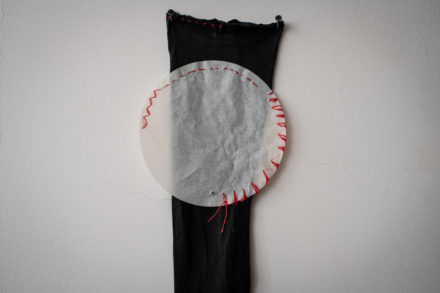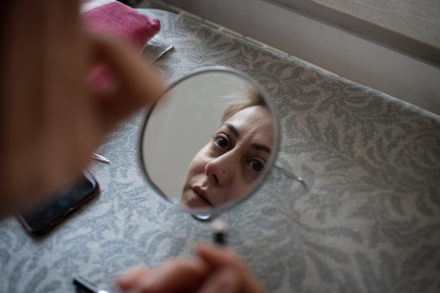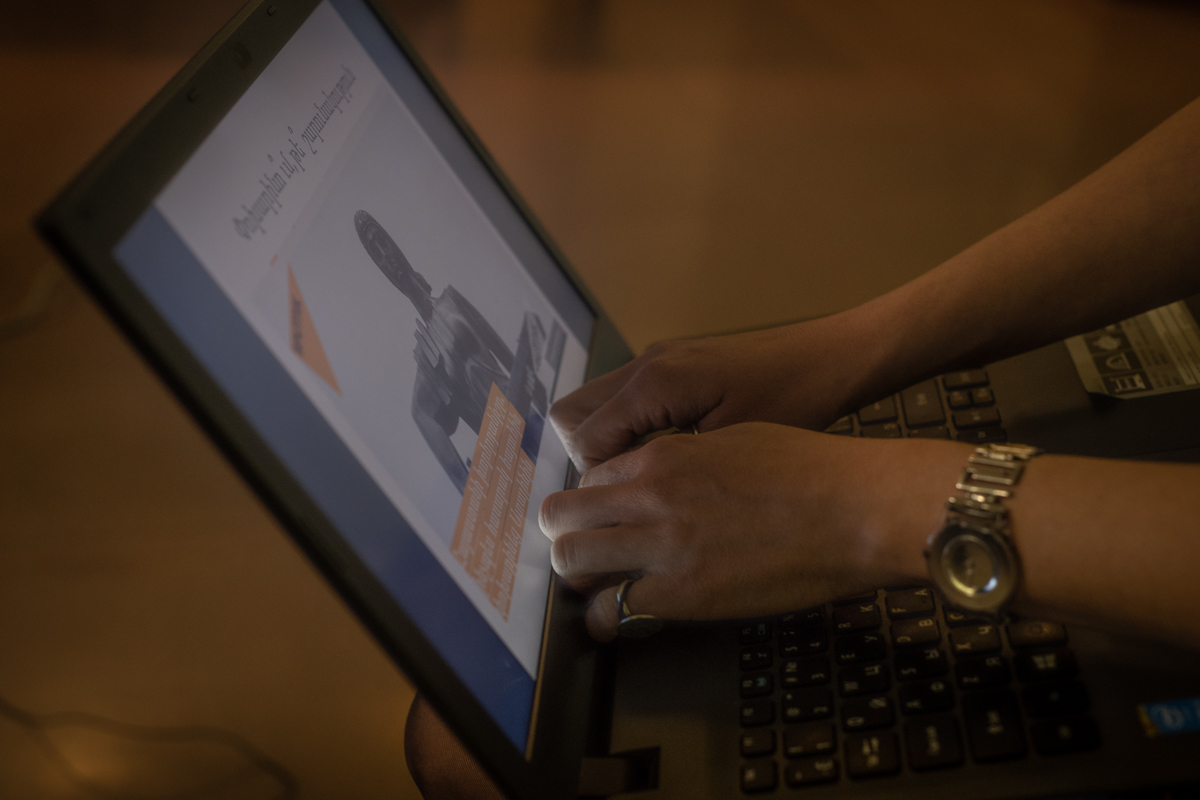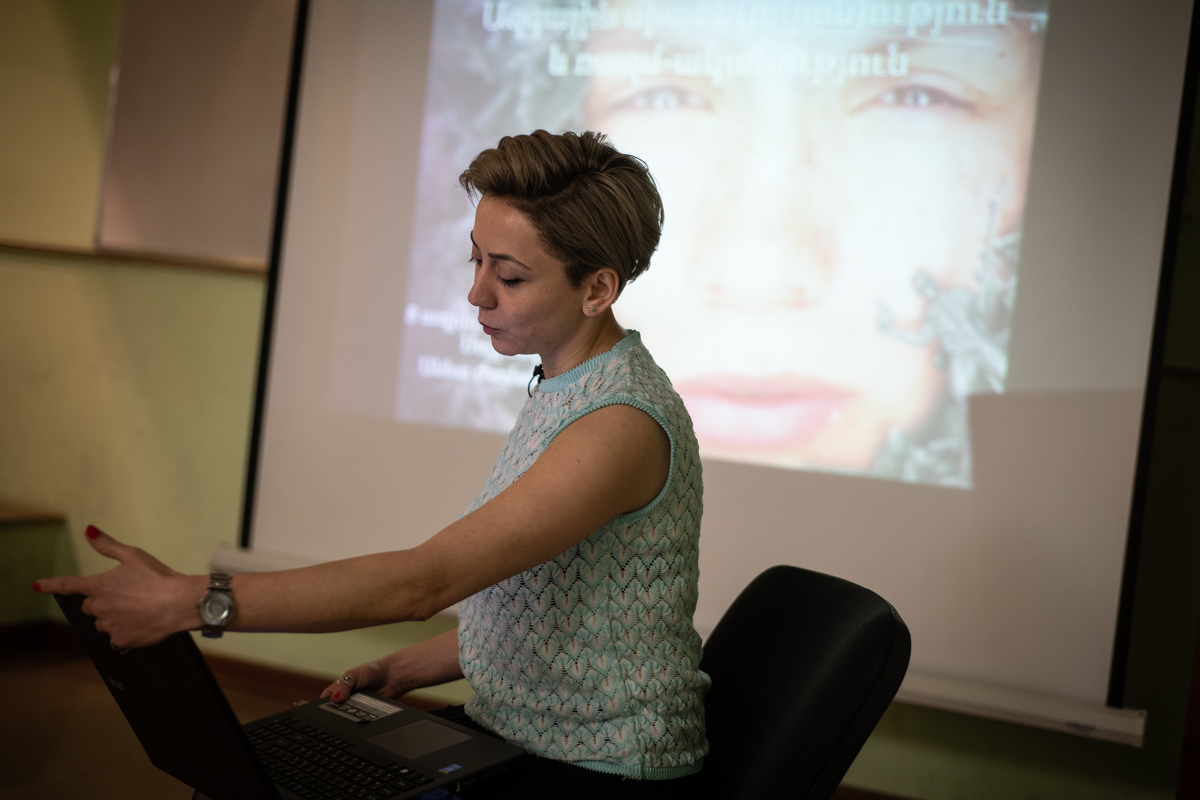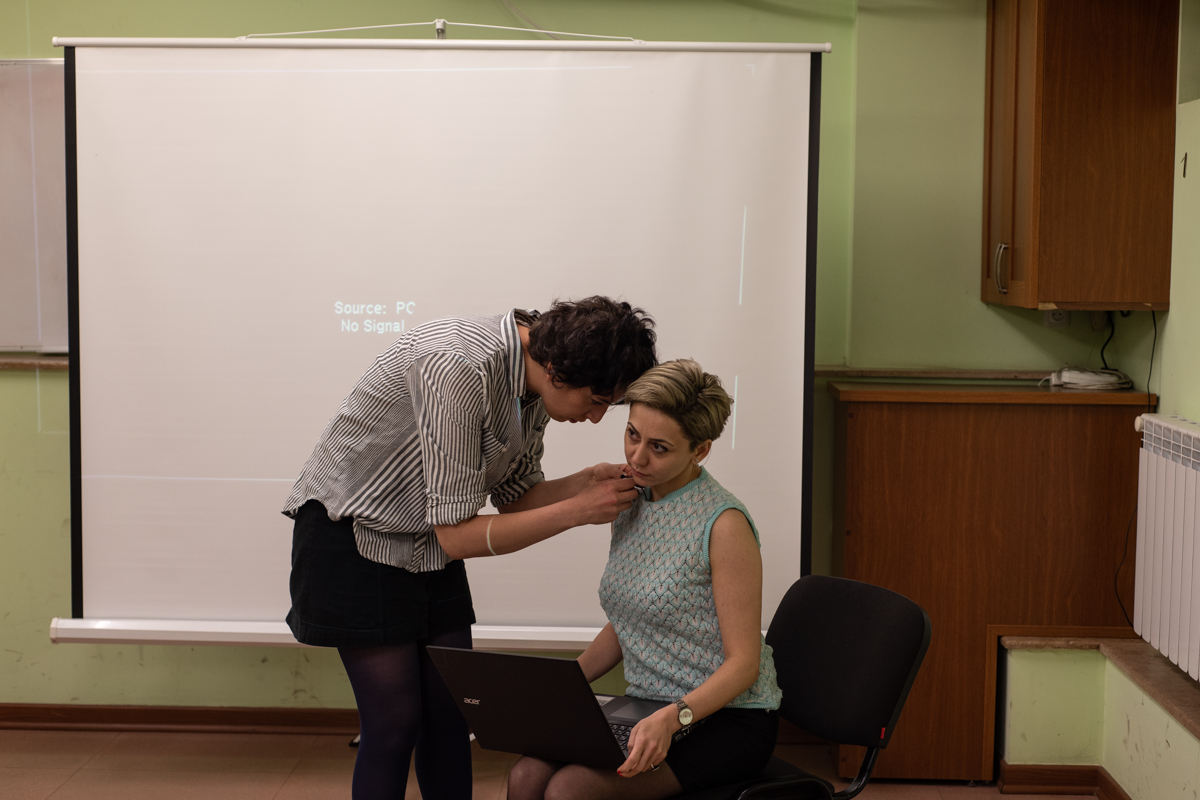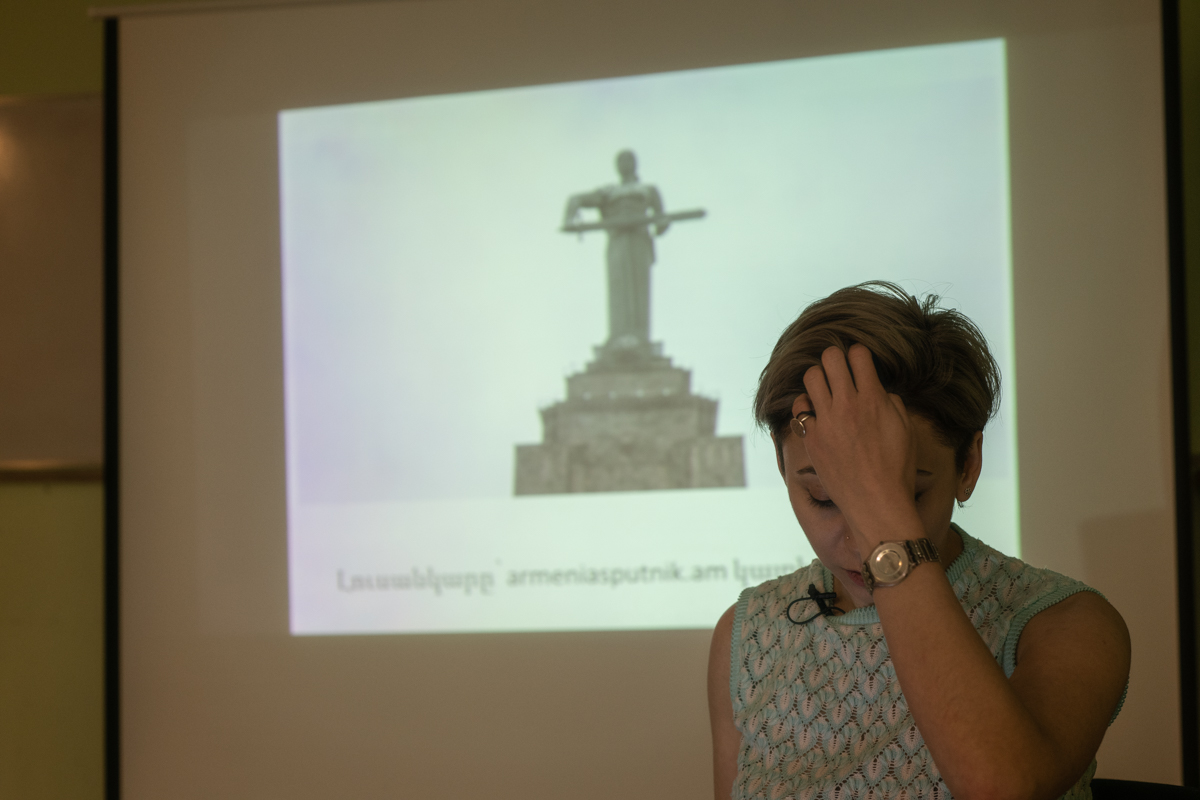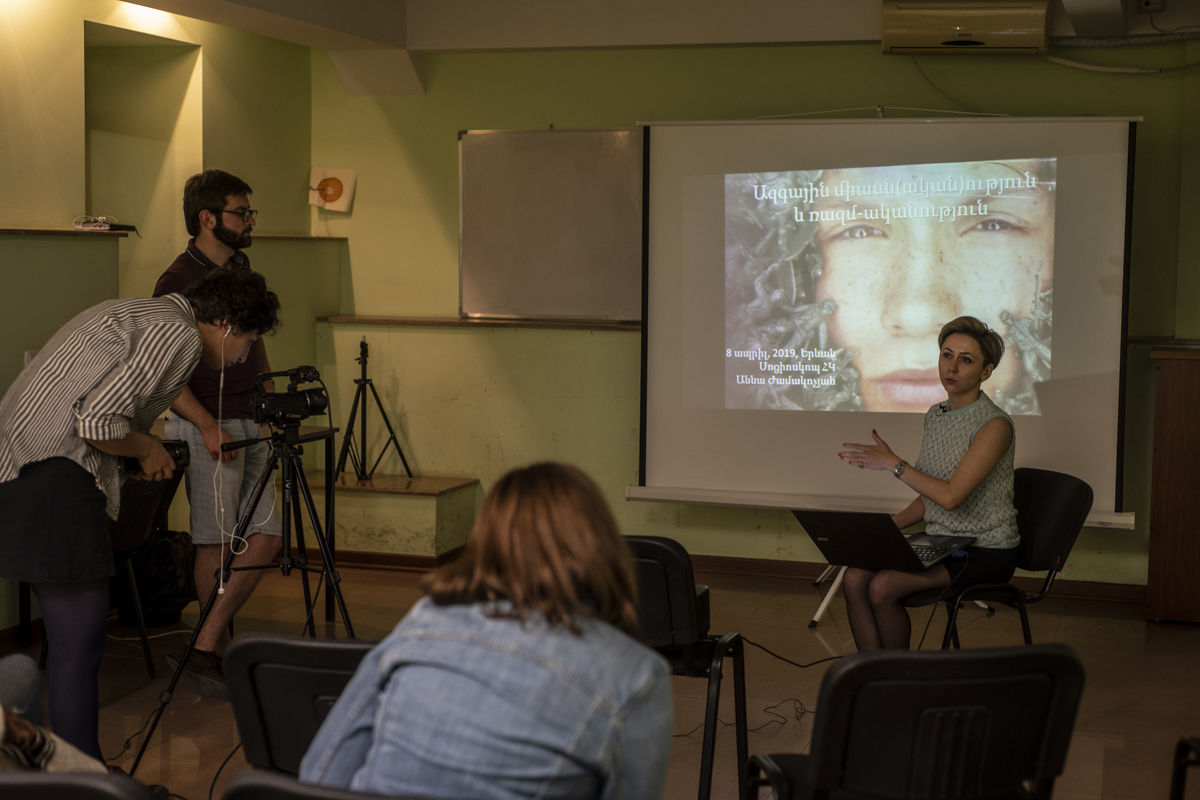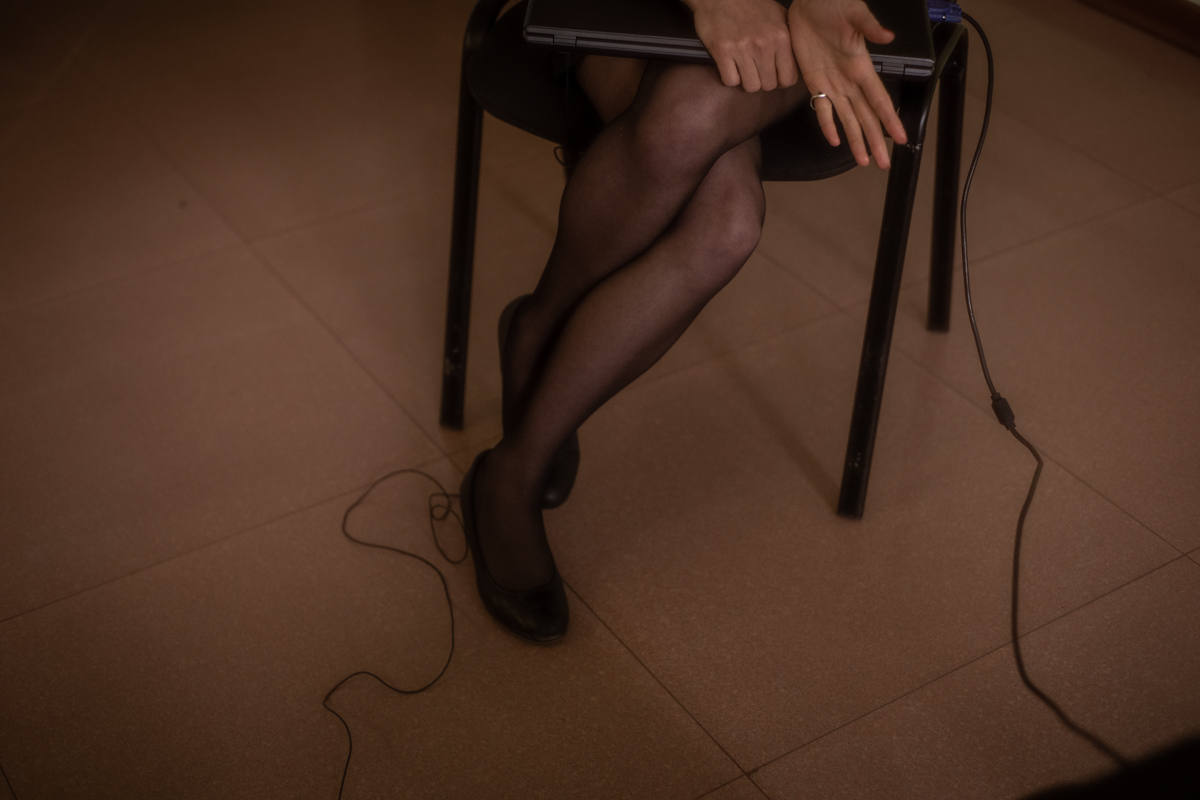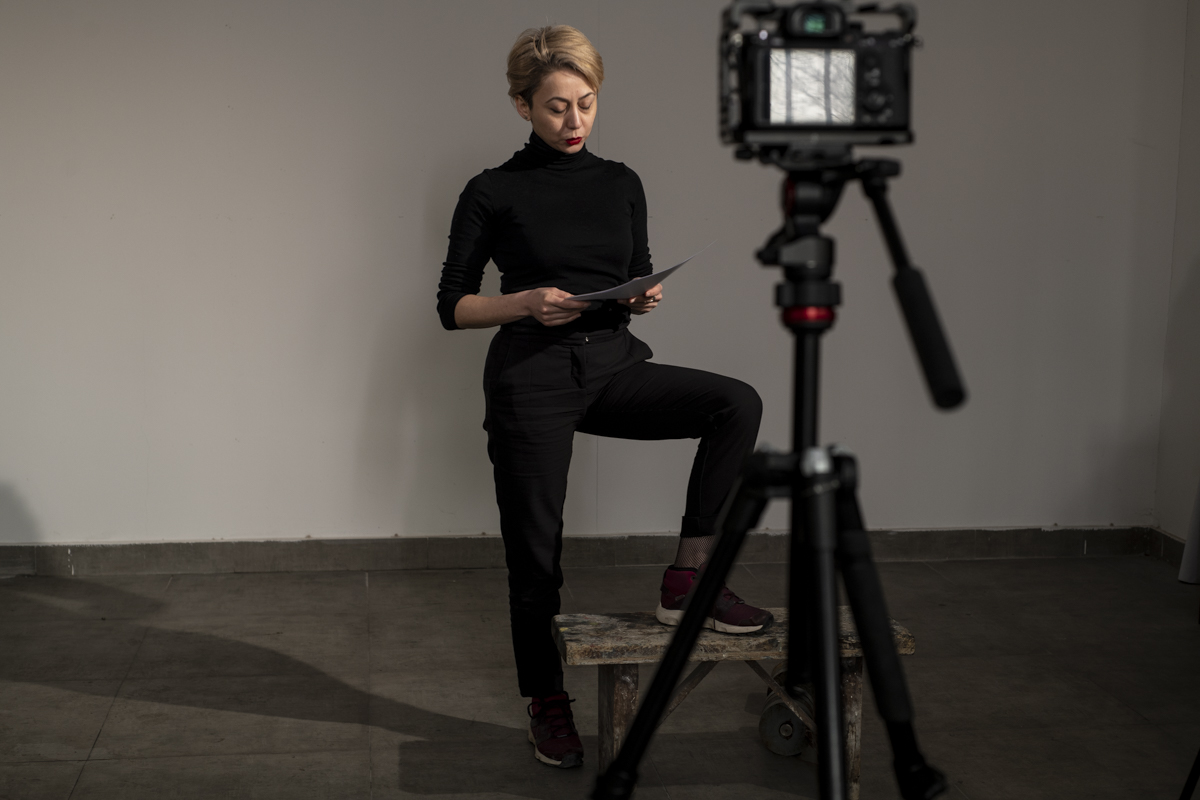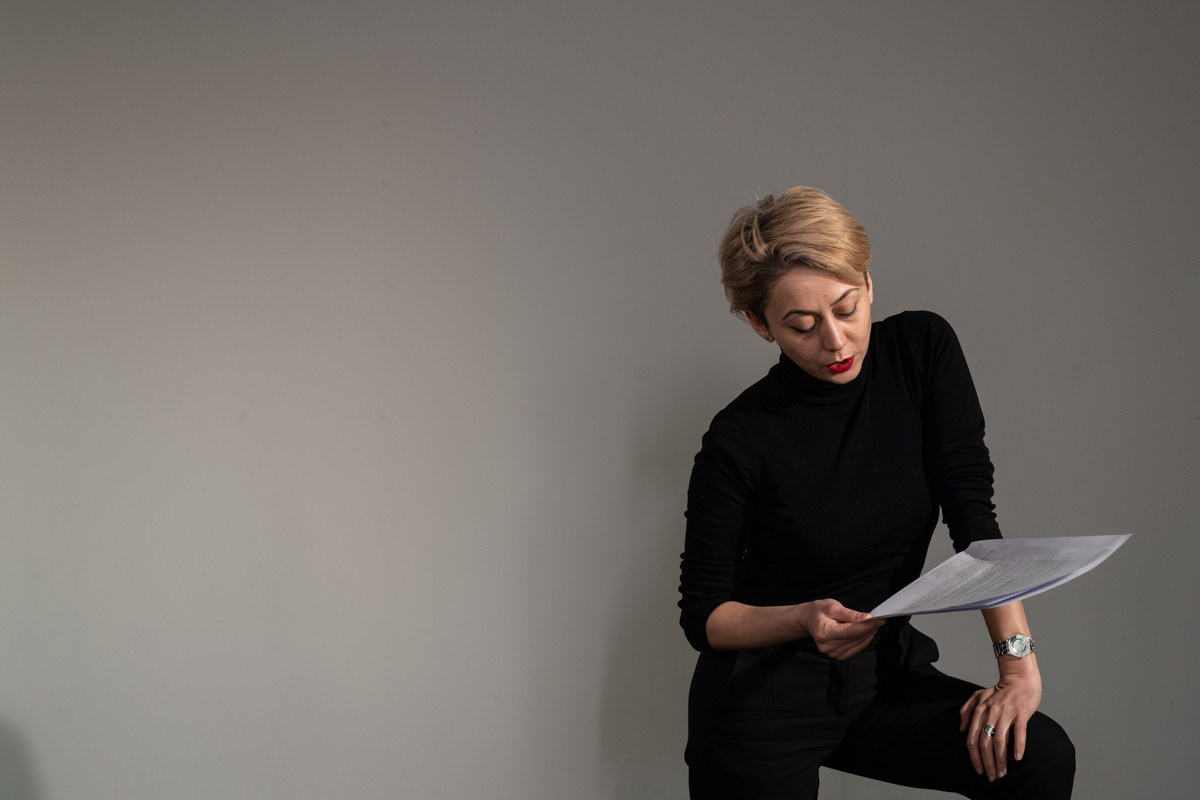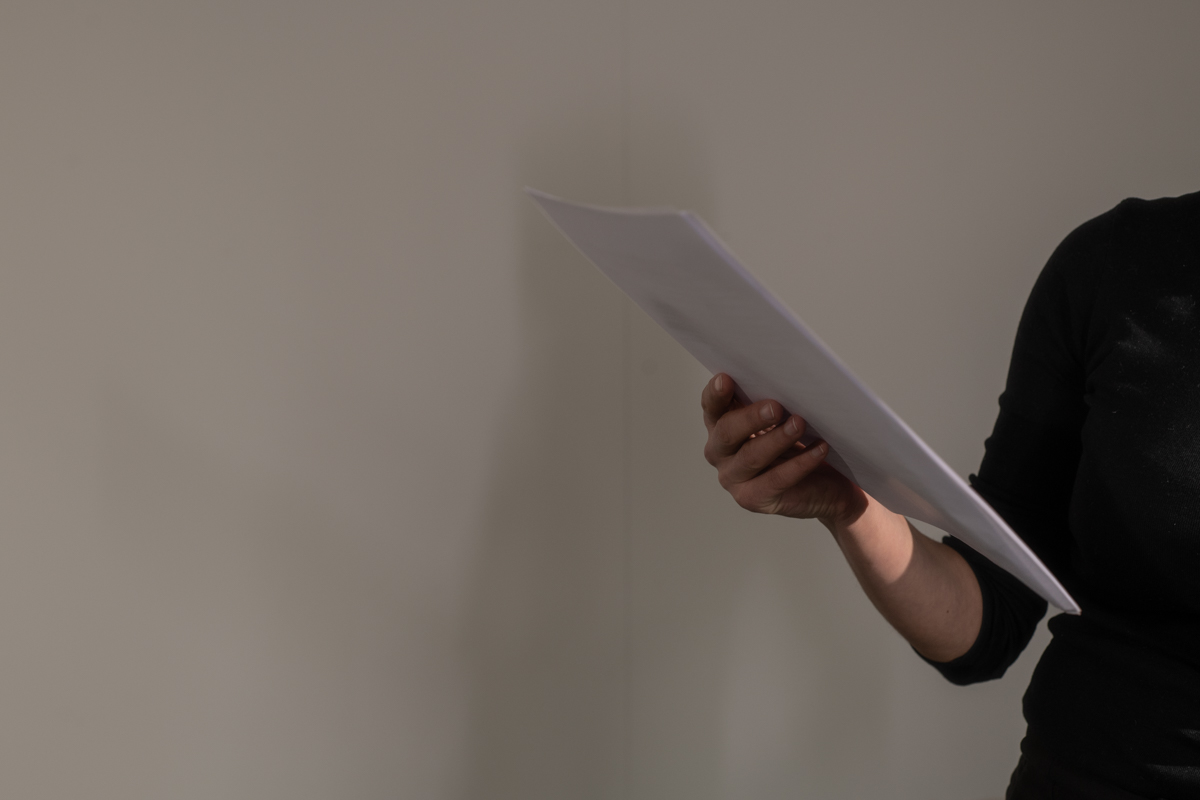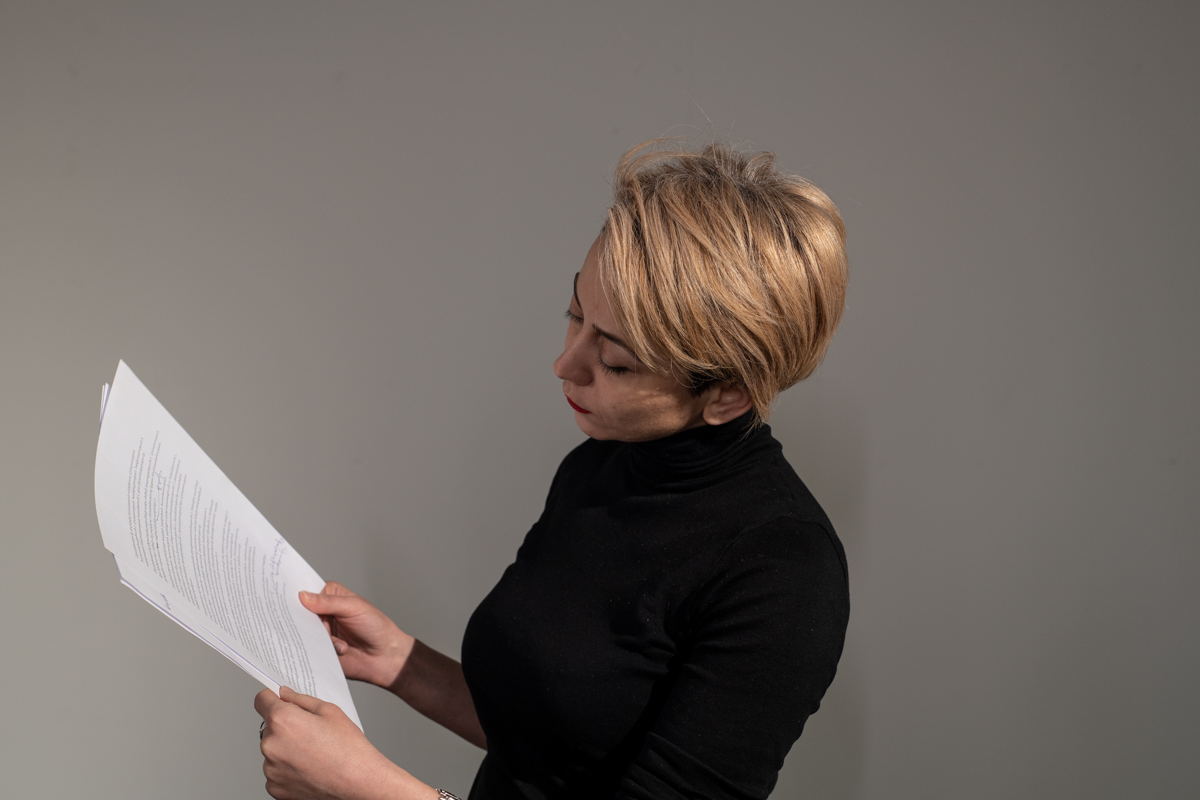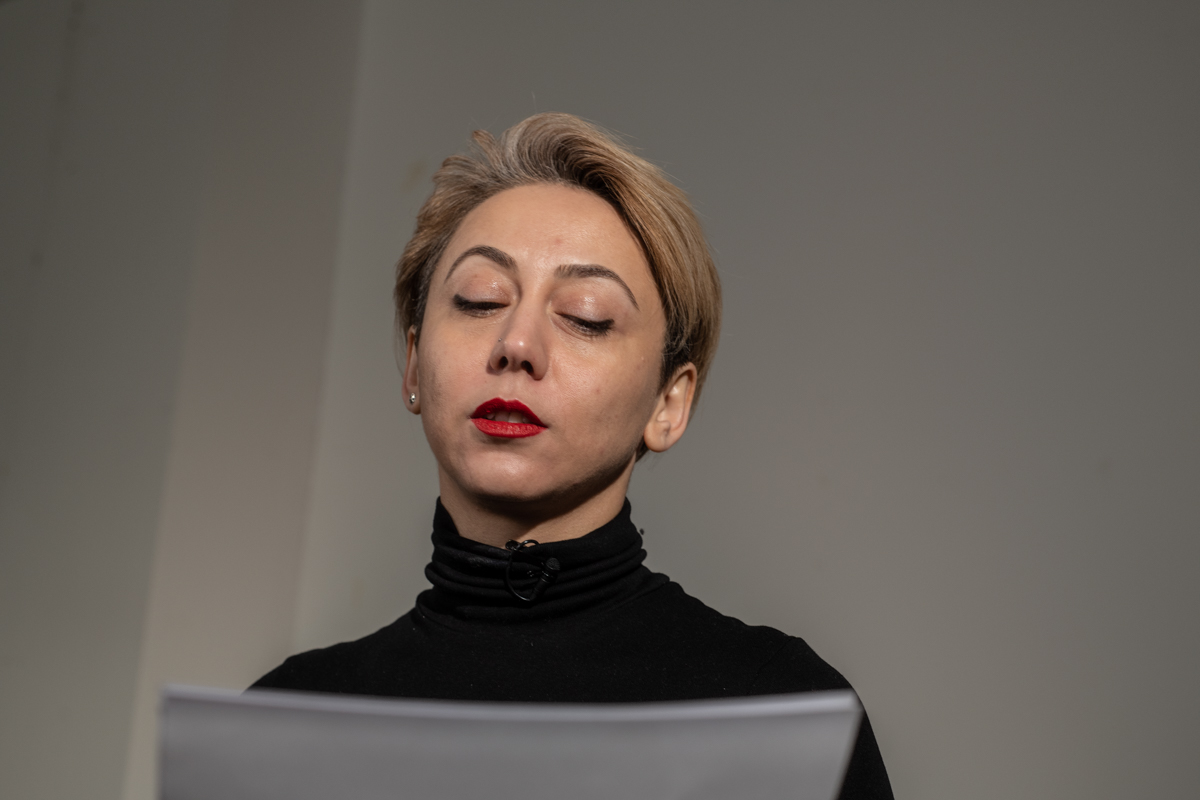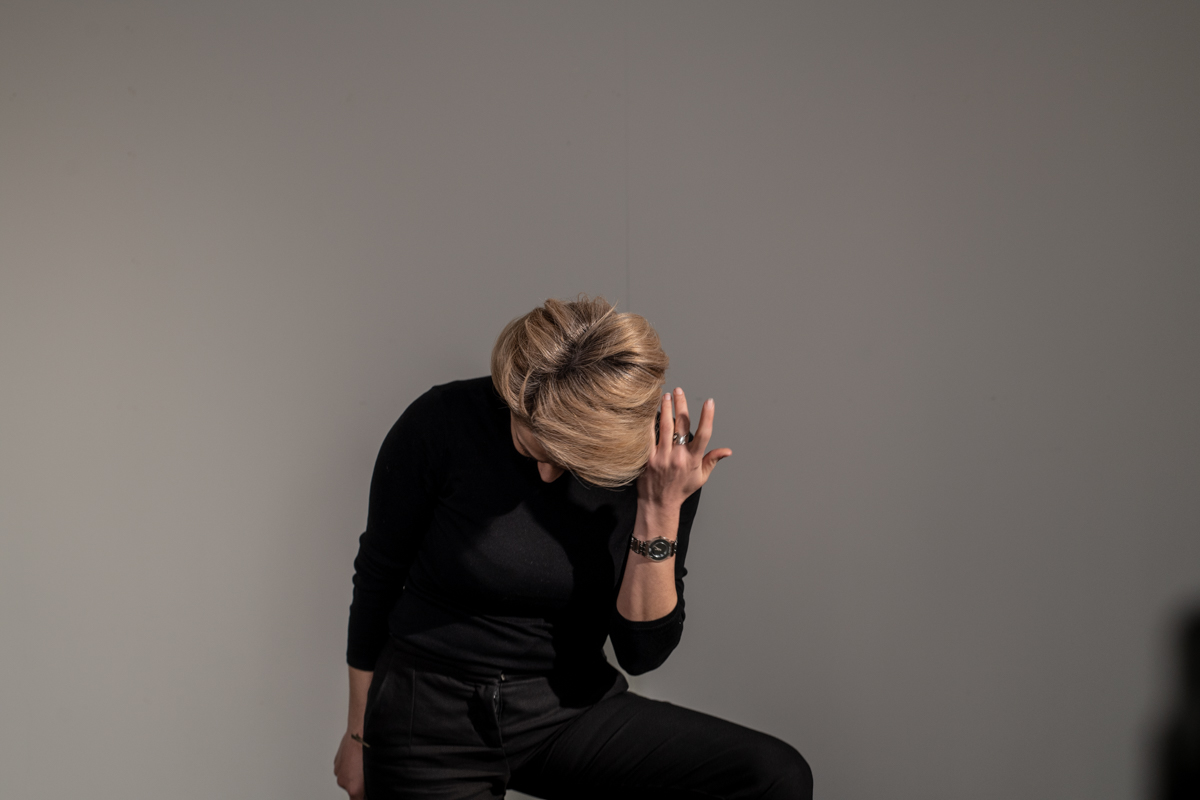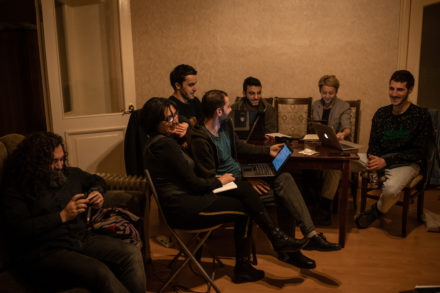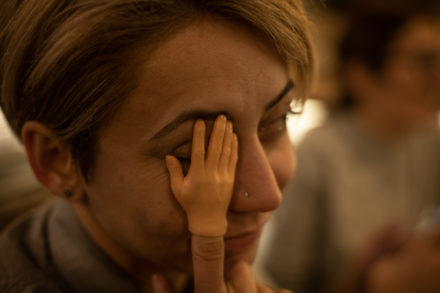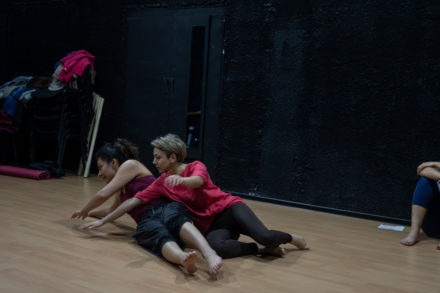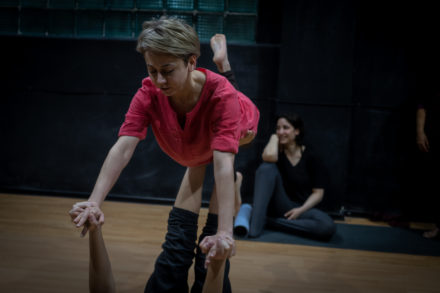Why Anna?
I had decided right from the beginning. We both had a distant respect and trust for each other, but Anna asked for some time to think. It was a new experience for her. For me too.
During our first conversation Anna said that her life is fragmental now. She hurries from one place to another. Endlessly. I began to follow her in different environments – at home, at her parents’ place, during her interactions with her friends and coworkers, at the classes of English and her theater rehearsals… Sometimes distantly and far, sometimes very close – at an open arm distance.
During some points of closeness I would think that new layers would open up now, but there happened stops. It was strange. Was I violating the frames, which I had tried to create so long. Was I violating the “rules” of the interaction between me and images. I have photographed Anna in different environments, in interaction with different people. Anna’s actions of stopping time, her images have themselves become fragments.
It was an interesting experience of forming my own understanding of Anna in a visual way. The conversations with her and her photographs continued to affect me when I was no longer with her. While photographing I would forget my initial intent of discovering her uniqueness and varying layers, I would not view her directly – her face, her appearance, her character, and identity.
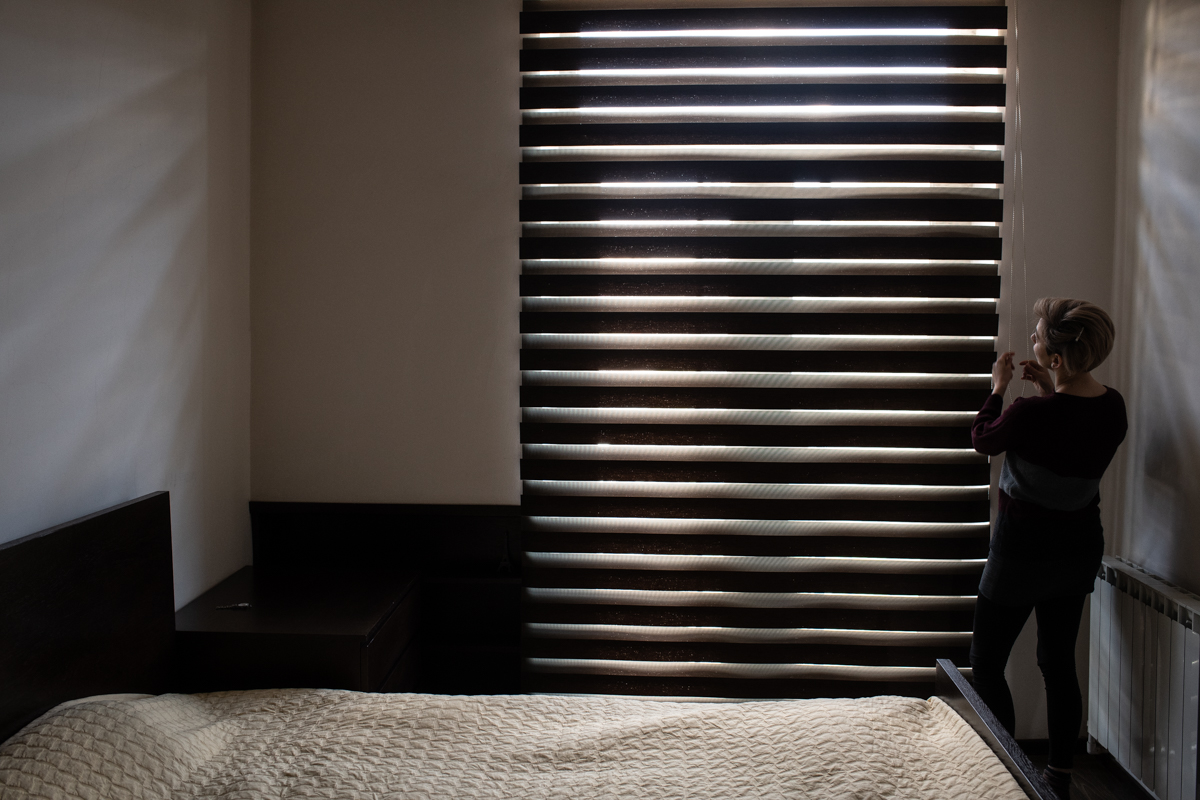
“It is the most unliked thing to talk about me, and from the angle of my profession too. I am officially a sociologist, but in practice I would name me a researcher. What do I do? I try to make different researches with my friends about the most important issues, trying to raise conversations, which are not yet actual in Armenia. We hope that those conversations will change the everyday behaviour of people, their worldview, their view of themselves, so that their social maturity brings up equality, horizontality of human relations, a bit at least, their being more humane.” [Anna at home in her bedroom.]
On one of the walls of Anna’s house is an artwork she crafted.
In the mirror.
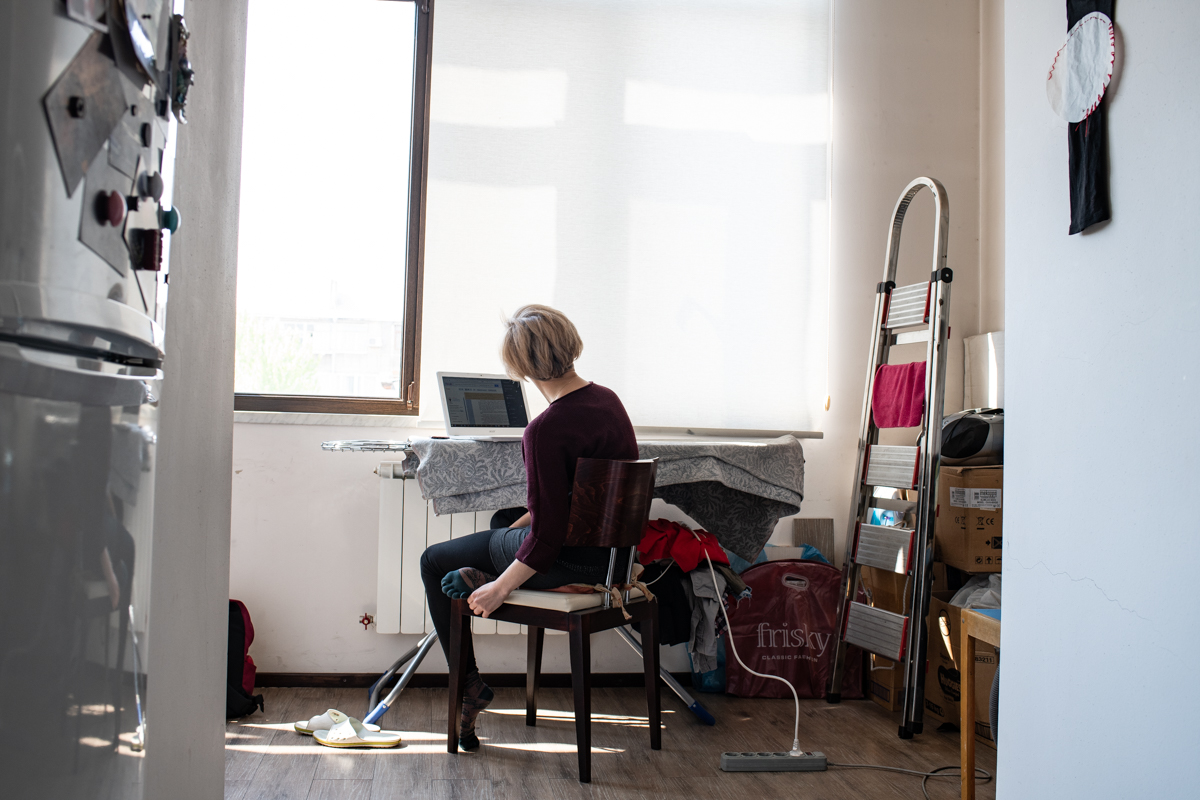
Anna at home.
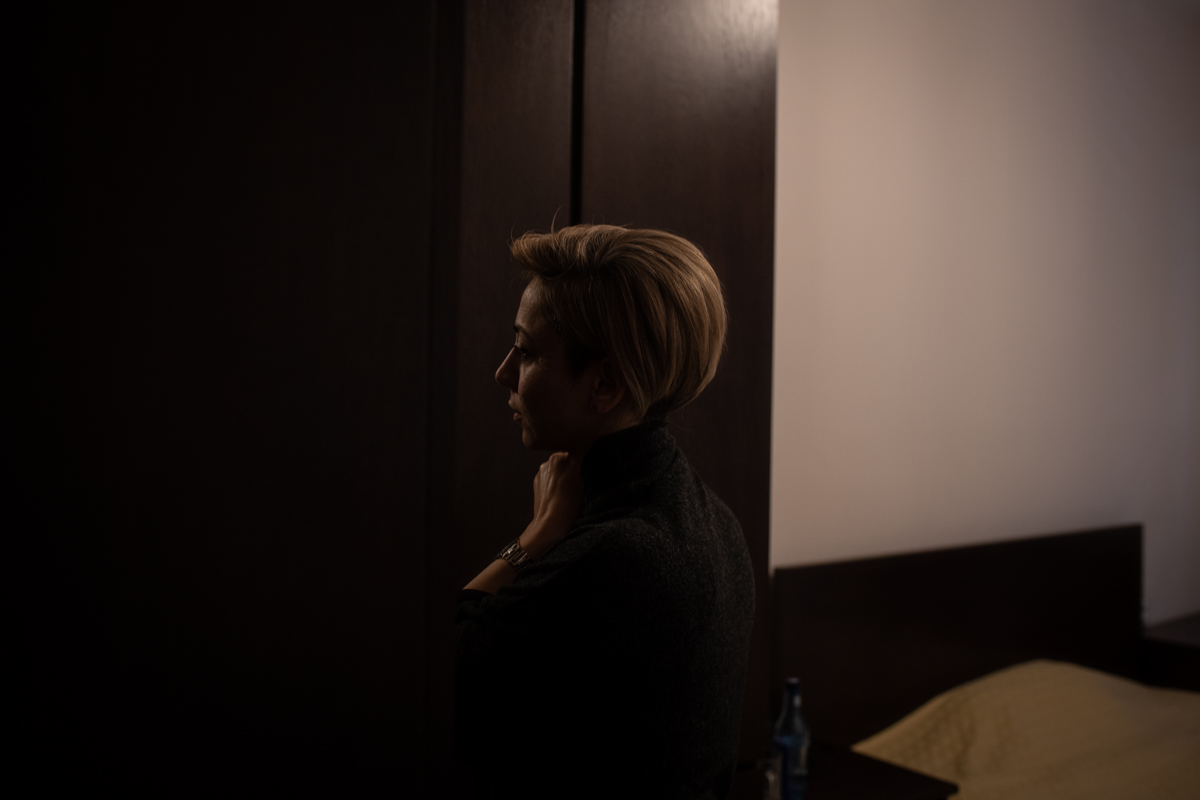
At home, in front of the mirror.
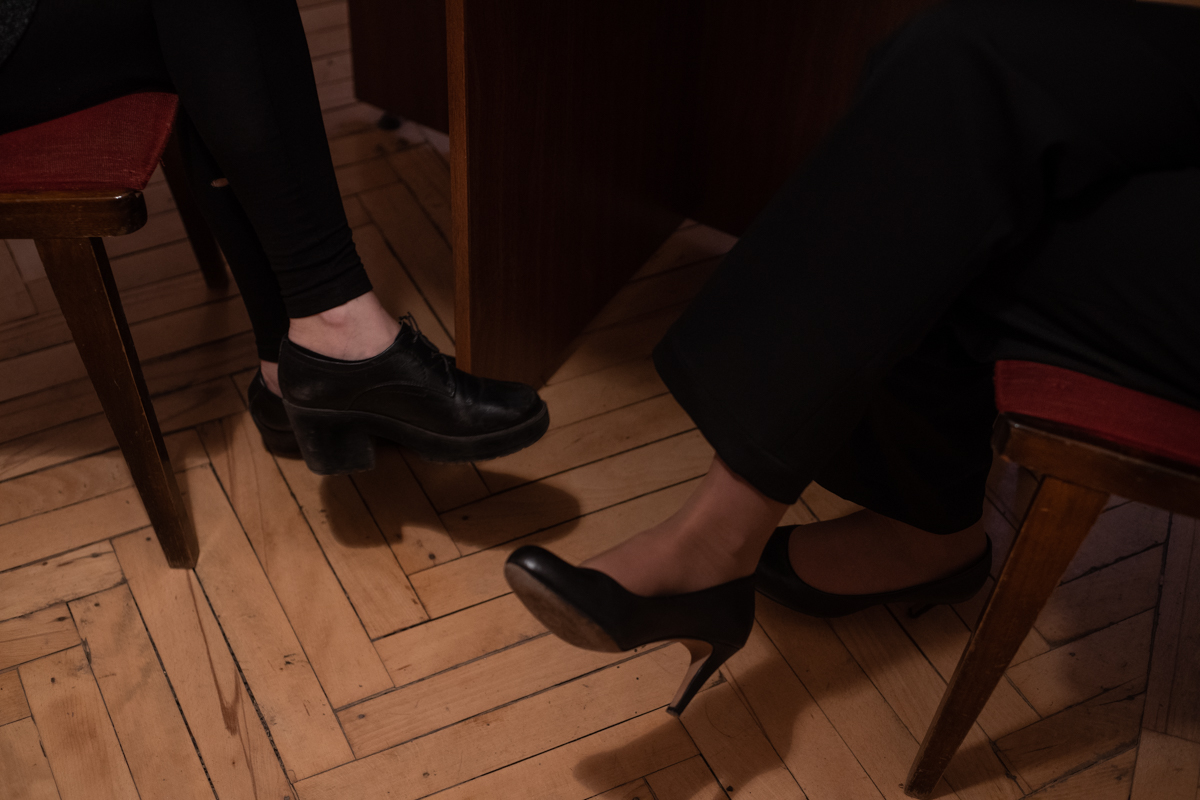
A meeting with Lena Nazaryan at Socioscope.
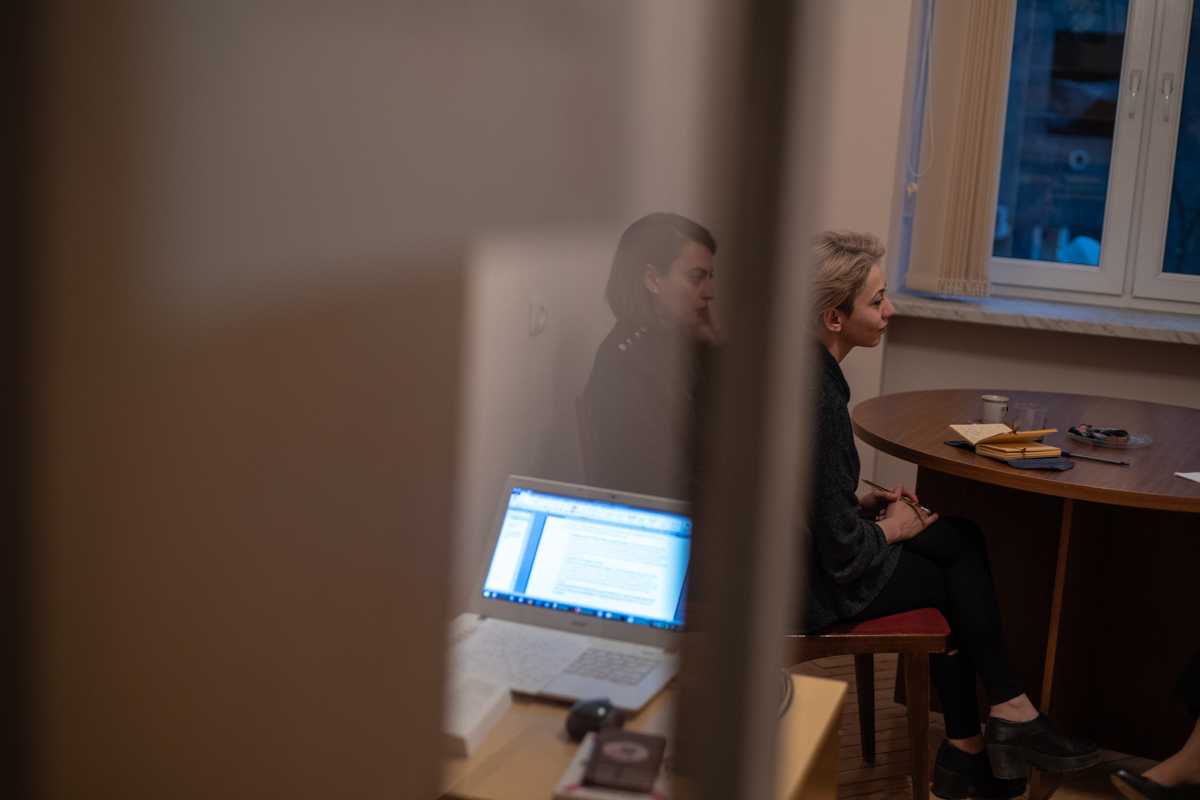
“Our society has very prepared groups, individuals. The actions of each of us matter today, everything that we say, a word, our role. Now we are in a phase when everything done or undone by each of us has precise consequences, visible consequences, and very rapid ones.” [A meeting with Lena Nazaryan at Sociscope.]
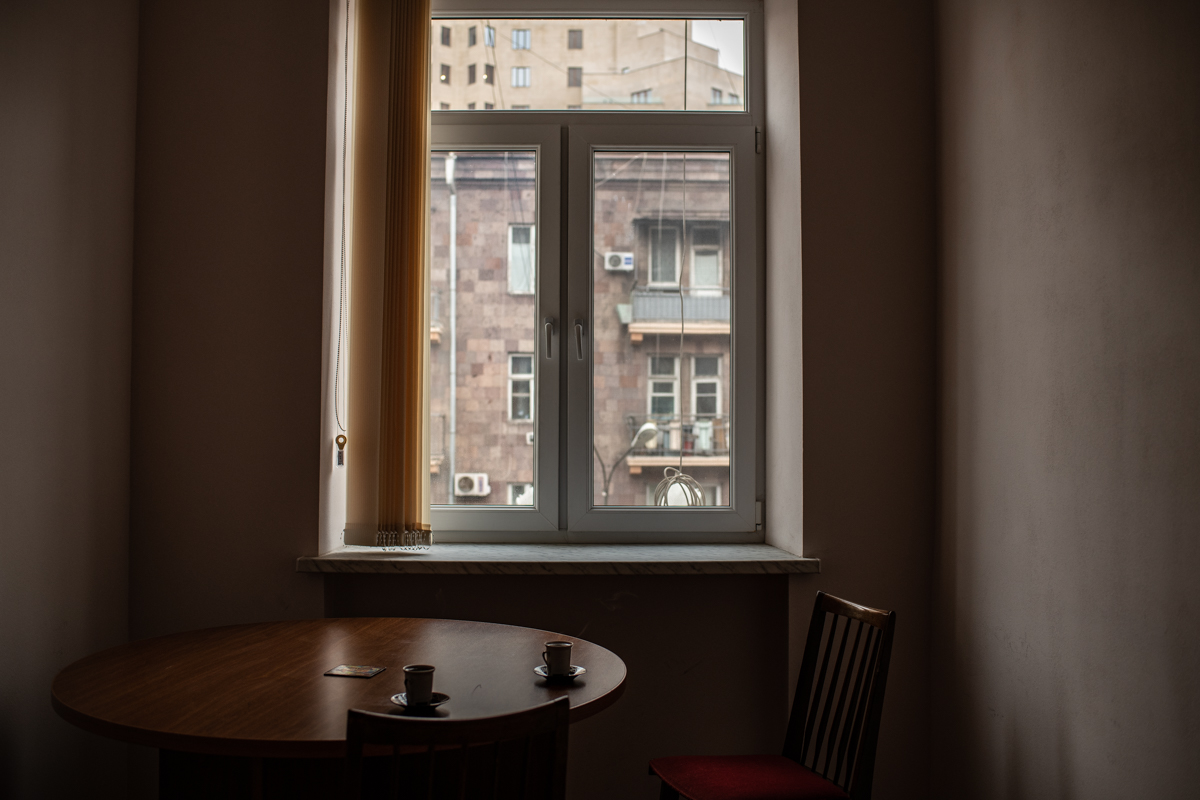
“Sociology is sometimes associated with numbers. Sociology is not that at all. It’s important for us to leave our numeric thinking. For example, there is domestic violence. Must it be 90 percent to be a big problem? But researches can lead to the evidence, that domestic violence is increasing in Armenia, but it’s not the violence that increases, but the conversations about it. When people begin talking about problems openly, the problem can be identified, recognized.” [Anna’s office room at Socioscope.]
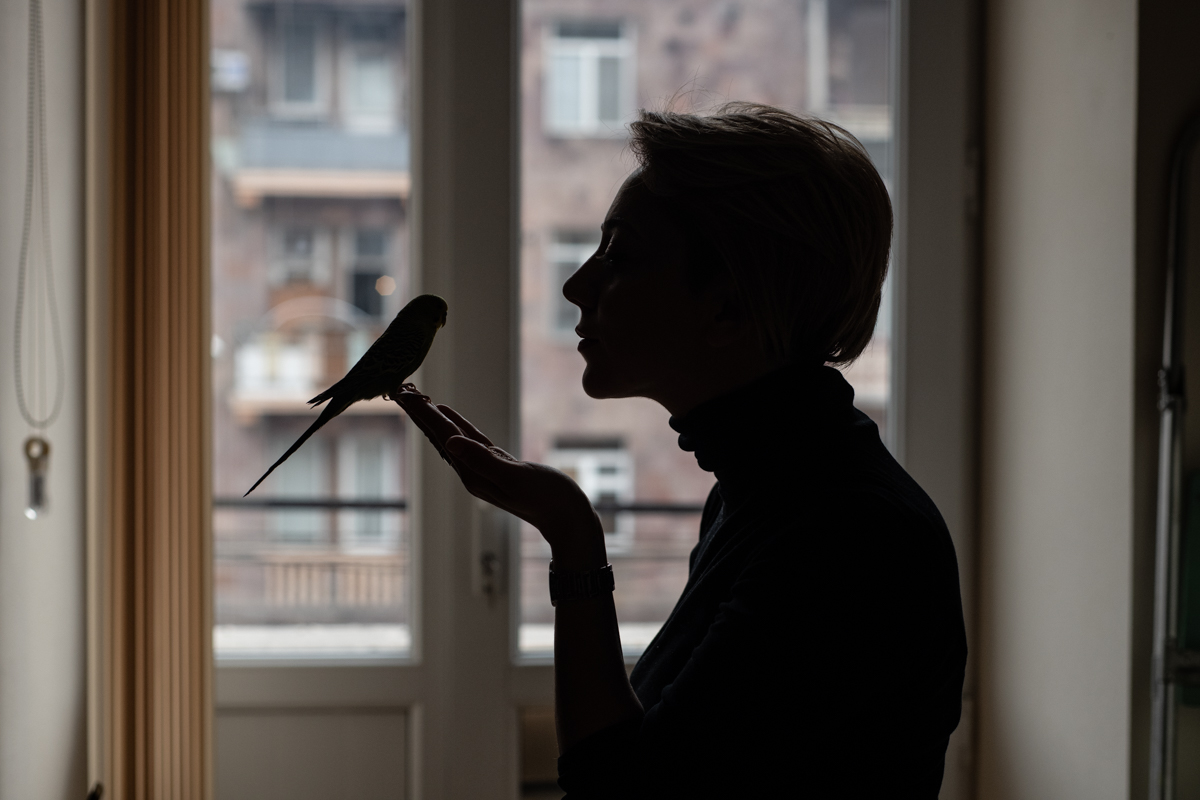
“A step taken just for one time is very little, it’s important, but little. We must be able to turn what we do into habits, we must not be reluctant to stand up again, to do the same thing again. Like what we learn in our personal life, in social life too they must become habits. Social life has been killed among us, no institute has been able to operate. Now those institutes must work, get formed, renovated, and this must become something very usual. Now everything is unusual.” [Anna at Socioscope.]
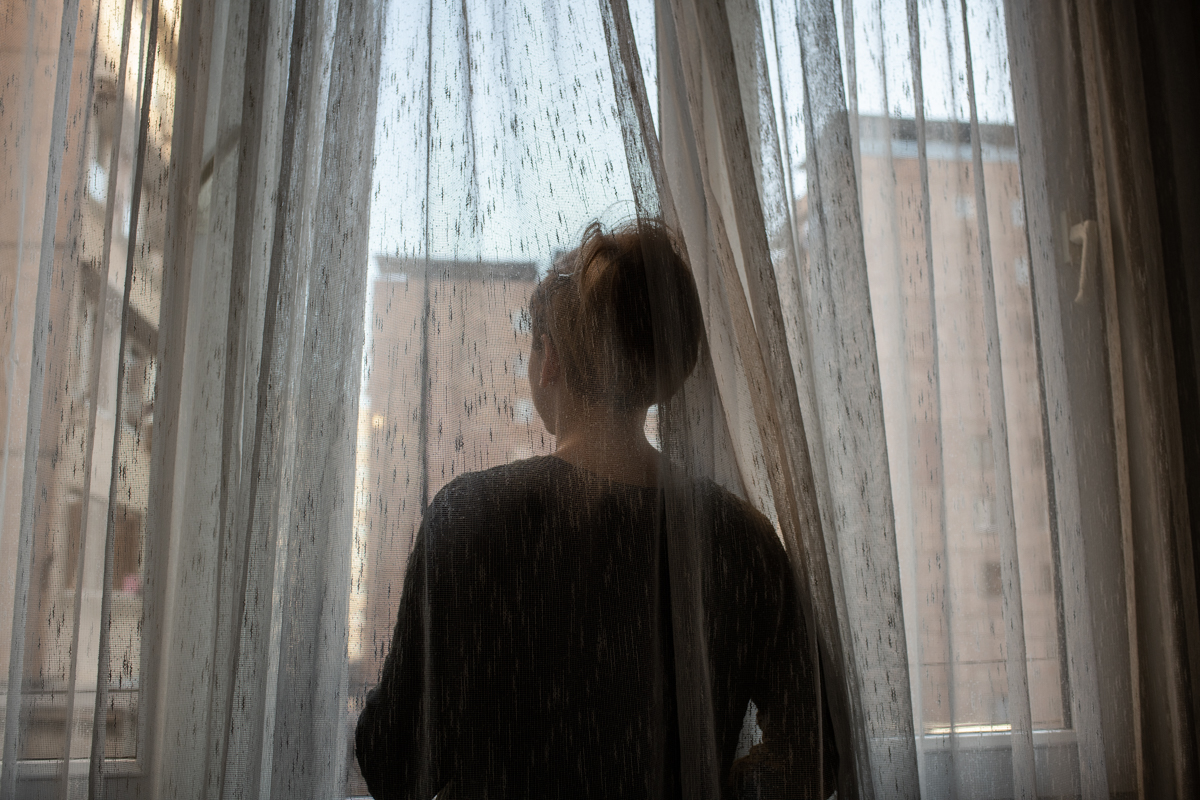
Anna at her parents place in the balcony, which has been her bedroom.
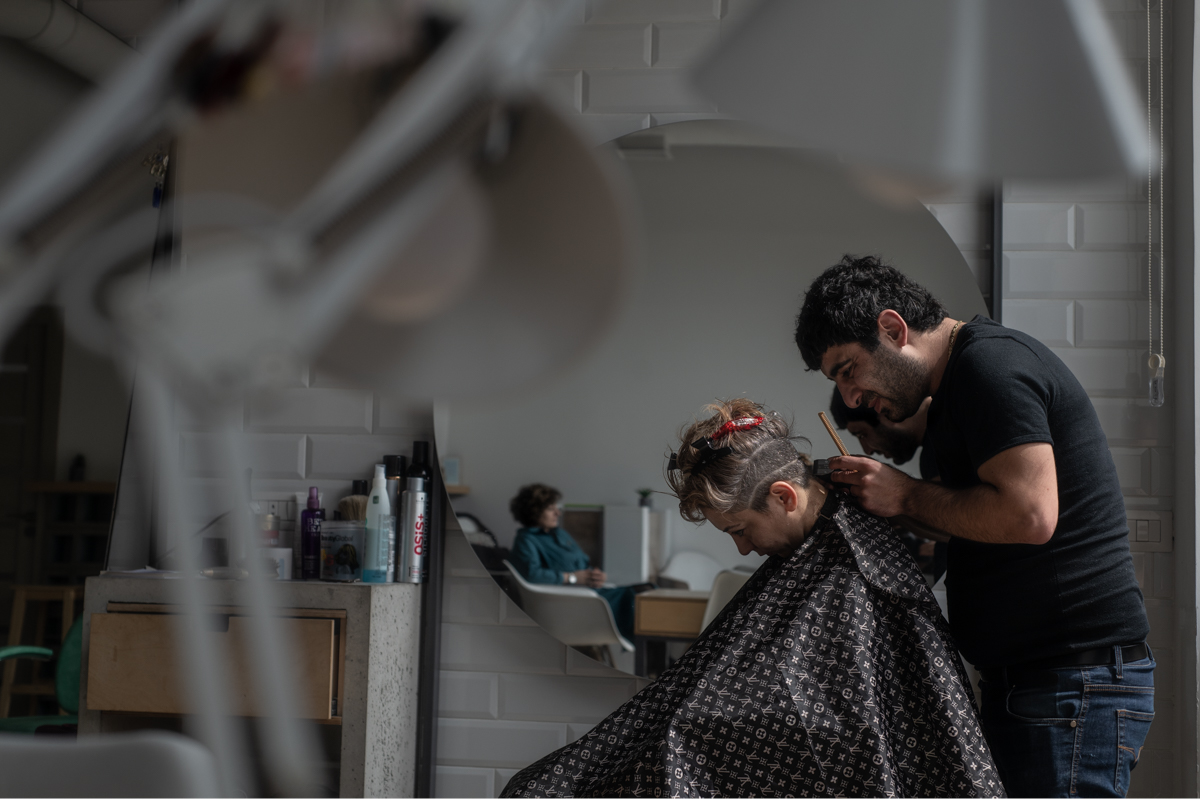
At the hairdresser’s.
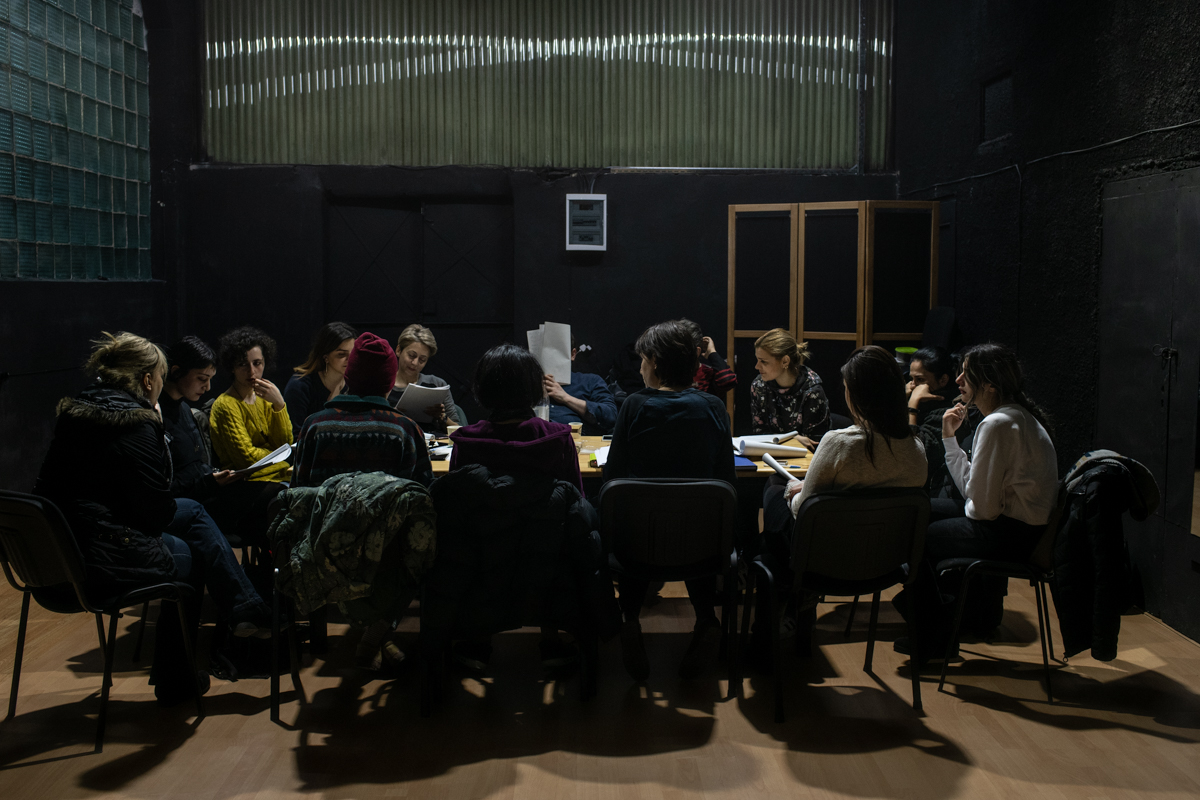
“I have the love and ambitions of being in connection with the art world, and I am trying to make art activism a piece of my/our activity. It, in a way, becomes an opportunity to watch the society from aside”. [During the rehearsal of the literary work by Karen Karslyan “The Regime is in Panic” with the amateur theater troupe “Tek Tegh”.]
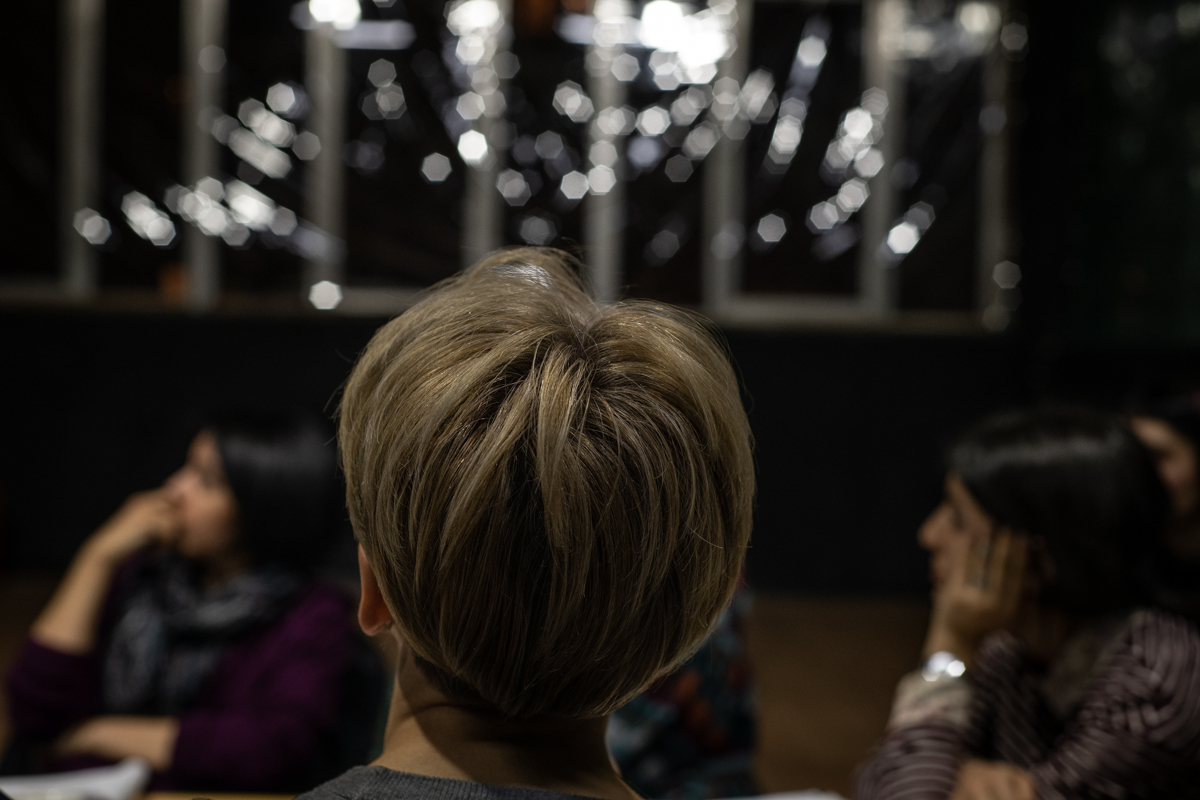
During the rehearsal of the literary work by Karen Karslyan “The Regime is in Panic” with the amateur theater troupe “Tek Tegh.
At the English classes.
With her friends.
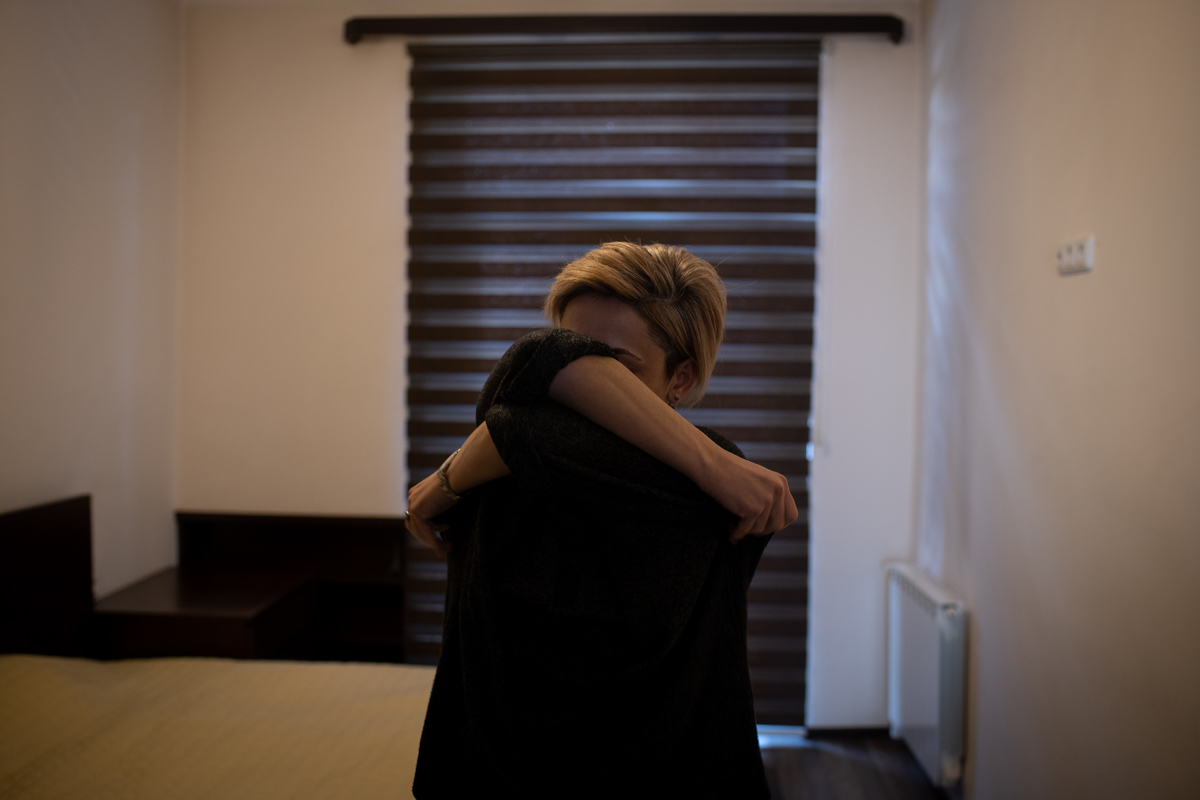
“I have understood that I am a woman very late, in the sense, that all the problems, some minor issue, during a conversation at a table you have noticed that you, what you say is not paid attention to, or you have to bring more arguments, than others… It had never crossed my mind that it could be related to the fact of being a woman. And then later, when you are more mature, when you dare to talk to your friends, share your ideas about this problem, it turns out, that they have faced the same problems too and continue to face. And you understand that it is not your shortcomings or problems inside you, but it’s a social problem. In that sense I mean, that I have understood it very late that being a woman is a separate feature.” [Anna in her bedroom.]
At the workshop of Edmond Habetyan’s contact-movement organized by the theater troupe “Tek Tegh”.
At the workshop of Edmond Habetyan’s contact-movement organized by the theater troupe “Tek Tegh”.
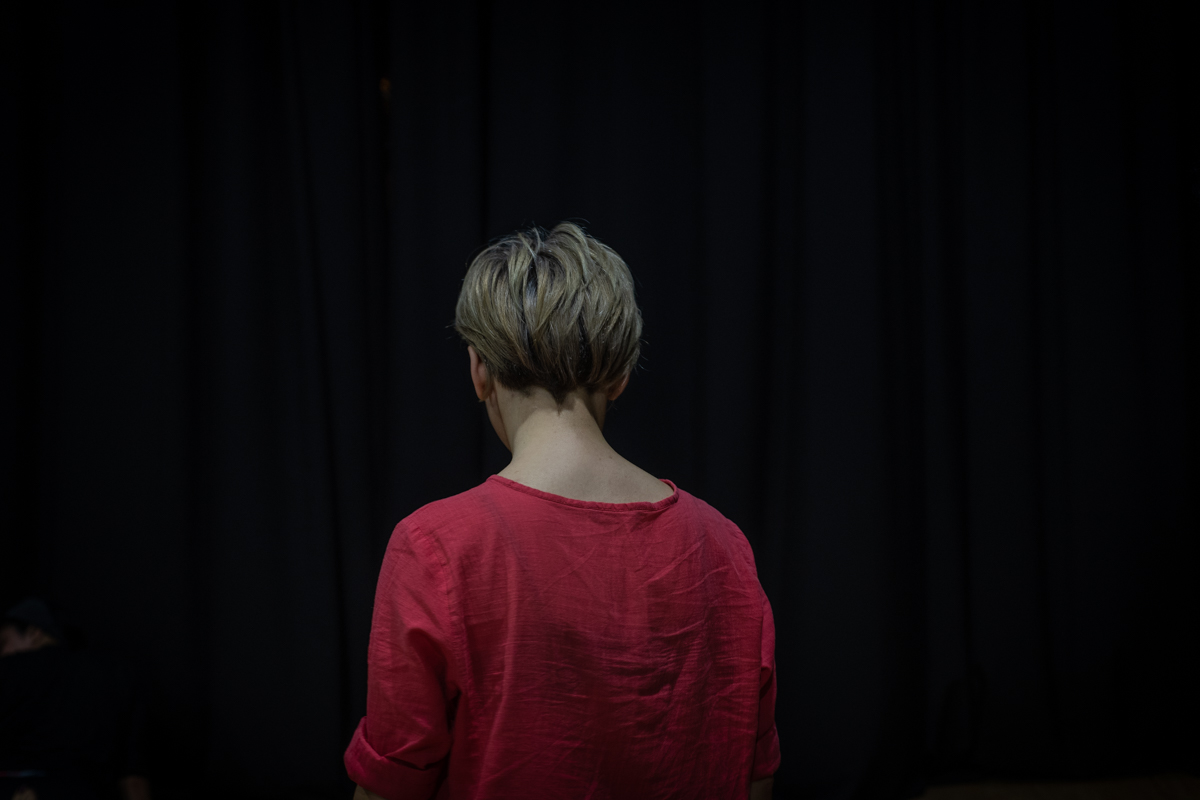
“There is a feeling of a universal connection that I have with people, and meanwhile a layer of loneliness. It’s the cosmos, and you are alone in that cosmos, while in a very firm connection with it, but alone. I am inside so many places, among so many people, but there is as much the feeling of loneliness, where I do not have a dialogue with anyone. I mostly have silences with many people. I can interact with the world like that.” [At the workshop of Edmond Habetyan’s contact-movement organized by the theater troupe “Tek Tegh”.]



